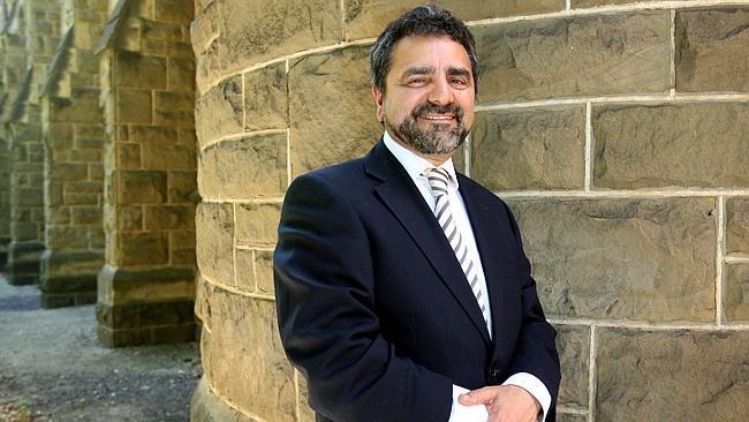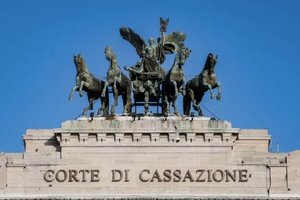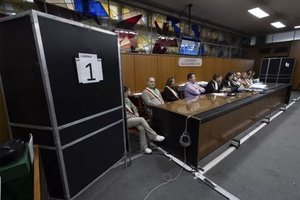Professor Emeritus at the Melbourne Graduate School of Education, he was also the chief executive of the National Languages and Literacy Institute of Australia until 2002, as well as the president of the Australian Academy of the Humanities – the first educator and non-Anglo-Saxon to be appointed the position.
In his work, he supports international research projects on language planning, multiculturalism and intercultural education and also advises on language, culture and literacy education, the integration of indigenous and immigrant children into mainstream schools, and reconciliation and peacebuilding through education.
Prof. Lo Bianco has received myriad awards, both nationally and internationally, including the titles of Member of the Order of Australia (AM), “for service to the development of language policy and planning in Australia and overseas”, in 1998, and Commander of the Order of Merit of the Italian Republic, “for services to language research and teaching and in recognition of contributions to Australian-Italian cultural relations”, in 1999.
As he shares with me his story, he is as well articulated and wise as one would imagine.
Hearing about the hardships he overcame makes his achievements all the more inspiring.
Prof. Lo Bianco was born in 1953 in the rural town of Myrtleford, in the northeast of Victoria, during an intense period of migration to the area as a result of the booming tobacco industry.
His parents migrated to Australia from the mountain village of Melicuccà, in the southern Italian region of Calabria – his father, Vincenzo, arrived in 1950 and his mother, Antonietta, followed two years later.
“Mum had one son in Italy and another three here,” Prof. Lo Bianco says.
Many relatives on both sides of his family also migrated to the same area and Prof. Lo Bianco grew up in a “bubble” of farmworkers and their children.
“Those early years were very difficult for my parents and there was a lot of hardship,” he says.
“We moved around a lot in the district, living in sharefarmers cottages.
“I didn’t really have any contact with the wider community until I went to school and that’s when I started to learn English; my first language was calabrese.
“In those days, rural areas were quite inaccessible and nobody had televisions, so we basically only had contact with the sharefarming communities on the farms; it was a strange childhood.
“My parents were very hardworking and we had to work or fend for ourselves as kids, until we went to school.”

The Lo Bianco family pictured in front of Mount Buffalo in 1961 (left to right): Vincenzo, Rocco, Joseph, Antonietta and Domenico. (Photo supplied)
The family’s itinerant lifestyle came to an end when they bought an old house and moved into town.
Prof. Lo Bianco attended a large Catholic school, which often had classes of 60 students.
Most of his peers were children of migrants, mainly Italians from either Veneto or Calabria.
“There was a lot of ethnic prejudice against Italians; I remember it against my parents and myself,” Prof. Lo Bianco says.
“I remember the struggle to learn English, but I also remember that I really loved learning and school.”
His inquisitive mind saw him become one of the few children in the area to complete their schooling, with most dropping out and returning to farmwork.
With parents who never had the chance to finish primary school, a young Lo Bianco was determined to make it to university.
He did more than just make it, going on to complete a staggering six degrees, including a PhD that he undertook in the United States through the Australian National University.
His first degree was a Bachelor of Economics at Monash University in 1976.
“I actually never would’ve chosen economics, but we didn’t have the full suite of curriculum available to us,” he laughs.
“A lot of what you choose to do in life isn’t really a choice; it’s just what’s possible and what’s available to you.”
During his early years at university, Prof. Lo Bianco explored the cause of social justice and human rights.
“It was through that – always remembering my parents’ struggle with English – that I became interested in language as a human right and that’s what I’ve done for the rest of my life,” he says.
“By the late ‘70s, there was a lot of interest in community languages and migrant rights.
“I worked for the state government in Melbourne and we started primary school community language programs, which had been illegal since 1918.”
Prof. Lo Bianco’s work was noticed at a national level and the federal minister for education at the time, Susan Ryan, invited him to work for her and write a national language policy.
“I went around Australia and spent a lot of time with Aboriginal communities, refugees, other migrants and school teachers – all while learning on the job,” he says.
While travelling around the country and writing the policy, he also completed a Master of Arts in Applied Linguistics at the University of Melbourne and a Bachelor of Education at La Trobe University to deepen his knowledge and enhance his work.
After 18 months of writing, Prof. Lo Bianco presented the policy and met with politicians from both sides to explain and promote it.
“There was a lot of pressure; it was politically tense and there were competing priorities,” he says.
His tireless work paid off, and the National Policy on Languages (NPL) was adopted in 1987 to cover all of Australia’s language needs and interests: English and English literacy; English as a second and foreign language and languages other than English, including Indigenous language rights, immigrant and foreign languages; and language services, such as research, translating and interpreting.
As Australia’s first comprehensive national language policy and the first multilingual national language policy in an English-speaking country, the NPL rightfully received international attention.
“It influenced a lot of policies and I received invitations from all around the world, mainly through UNESCO and UNICEF,” Prof. Lo Bianco says.
“I was pulled into something much bigger than I’d ever imagined.
“For the next 30 years, I went all around the world; I just kept on getting invitations.”
Prof. Lo Bianco has worked in Canada, Ireland, Papua New Guinea, Singapore, Slovenia, South Africa, Timor Leste, the United Kingdom and Vietnam, among others.
He has also lived and worked in Italy, completing a scholarship in Venice, teaching at Roma Tre University in Rome, advising on the integration of migrant children in Tuscany and Lombardy, and working for UNICEF at Florence’s Hospital of Innocents, the oldest orphanage in the world.
Many of his international assignments were in conflict-affected areas in countries such as Sri Lanka, Thailand, Malaysia and Myanmar.
“I was able to bring together people who had suffered at each other’s hands,” he says.
“I realised that languages can be reduced to textbooks and teaching, but deep down there’s something much more important that all of us should learn: tolerance and acceptance.
“If multicultural societies slide towards conflict it takes generations to overcome; to break from it, you have to build civil communication and respect.”
While the NPL was followed by periods which saw a shift in attention to Asian languages due to economic interests, and then English in a response to the country’s “literacy crisis”, it still influences policy 34 years on.
Prof. Lo Bianco believes the key to its longevity is its comprehensiveness.
“It didn’t suggest having Asian languages and throwing out European languages; it said we need both and we can have both,” he explains.
“It suggested having more focus on literacy, but not reducing everything to literacy.
“After these things are tried for a while, people come back to the balanced approach that the policy’s principles allow for.
“I remember writing the principles on a small plane in the NT, coming back from an Aboriginal community to Darwin; they’re what have stood the test of time.”
While the NPL led to a golden era in languages education across Australia, our country currently lags behind other OECD nations in this area, due to a lack of cohesion across jurisdictions; Victoria has by far the most successful language policy, while Tasmania does not have one at all.
“The literacy crisis really damaged everything because a lot of schools were pushed into believing that if you spent time on other languages, kids’ literacy would suffer,” Prof. Lo Bianco explains.
“When we look back on it, that was a very damaging belief; we’re suffering the consequences of that.
“English literacy is not harmed by learning another language; on the contrary, it benefits from it.”
In terms of the future of Italian studies, Prof. Lo Bianco has long been an advocate for immersion, bilingual and CLIL approaches that increase students’ exposure to and use of the language.
“We need deeper programs in which children can achieve high levels of knowledge,” he says.
“We also need more effort in the community to maintain and use the language.
“When you look at the census statistics, there’s a continual decline in the number of homes where Italian or dialect is used – thousands of families fewer each census.
“Fewer and fewer kids live in homes where they hear Italian spoken, and the community should do more.
“How many Italian clubs have activities that are language-based? Very few.”
“They should work with schools and provide immersion experiences.”
While Prof. Lo Bianco is officially “retired”, he continues to impart his knowledge with the world, editing for global academic publisher Springer and writing books, reviews and academic articles – he has even started penning his first novel.
“I’ve just done a review for the Indigenous Literacy Foundation and I’m doing work with the Greek community on supporting the maintenance of Greek intergenerationally,” he says.
“I’m trying to focus on Indigenous and community languages.
“English is the shared language of Australia and that’s what allows us to communicate across different languages, but we should also be able to communicate in those languages outside of our communities.”
Between all of these commitments, Prof. Lo Bianco also enjoys time with his wife, Nicky, daughters, Hana and Sofia, and son-in-law, Ben.
He is a doting grandfather to three-year-old Noa and 10-month-old Rafael, regularly taking the former to an Italian kindergarten program.
Though he has certainly come a long way from his life on the land in rural Victoria, Prof. Lo Bianco has never forgotten his roots.
“My life has taken many twists and turns, but everything I did in my early years was motivated by my family experience,” he concludes.
“Because the Italian community is so well established and successful now, people don’t keep in mind where we came from: the incredible sacrifices of our parents.”












